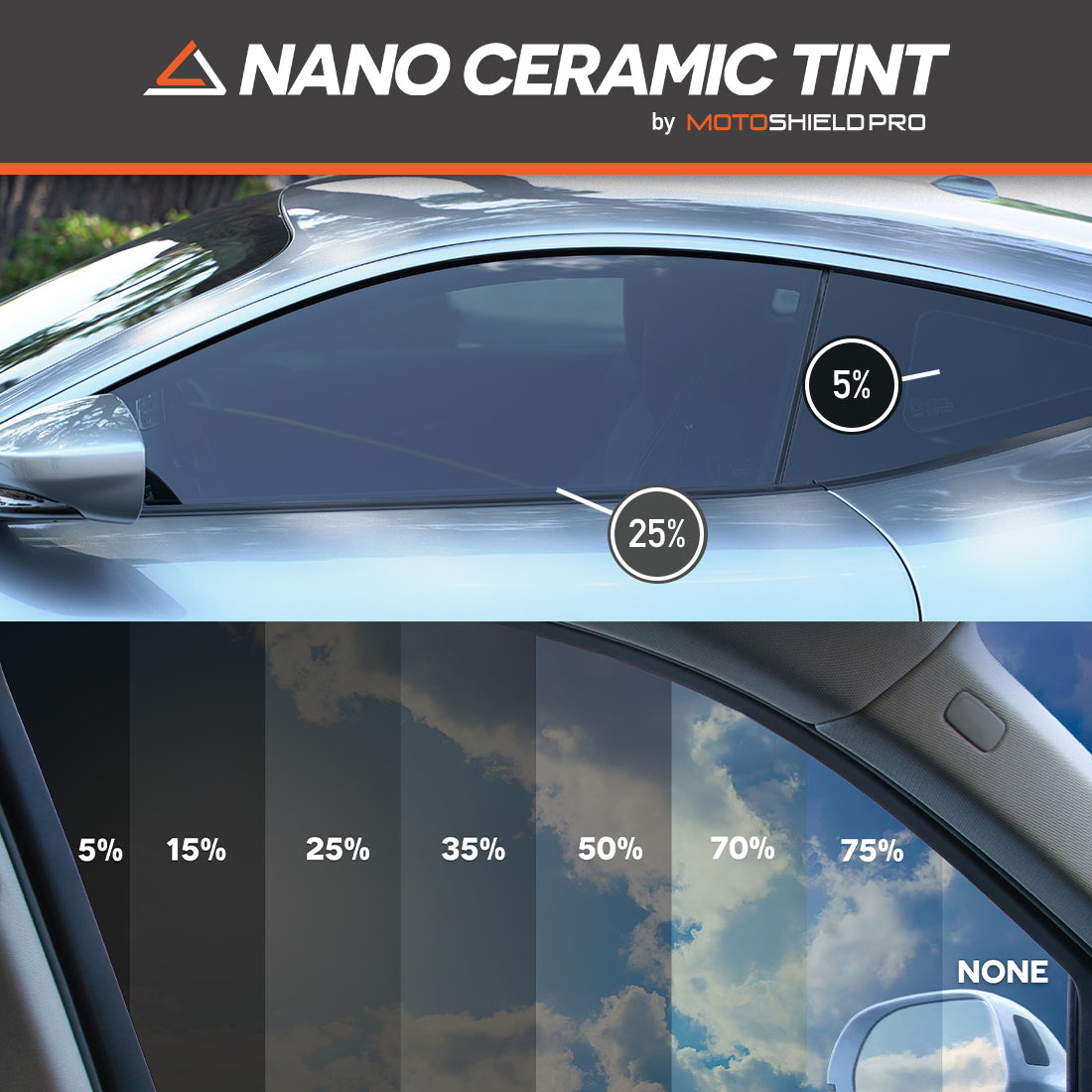Can You See Inside A Tinted Window?
Understanding Tinted Windows
Tinted windows are a popular feature in vehicles that provide privacy, reduce glare, and block harmful UV rays. Tinting film is applied to the interior side of the windows to achieve these benefits. However, many people wonder if they can still see inside a vehicle with tinted windows.
Types of Tinted Window Films
There are various types of tinted window films available, each offering different levels of privacy and visibility. Darker tints provide more privacy but may also limit visibility from both inside and outside the vehicle. Lighter tints, such as ceramic tints, offer UV protection and reduce glare without compromising visibility.
Can You See Inside A Vehicle With Tinted Windows?
The visibility into a vehicle with tinted windows largely depends on the type and darkness of the tint. Darker tints, such as limo tint, make it difficult to see inside the vehicle from the outside, especially in bright daylight. However, it’s important to note that visibility may still be possible under certain lighting conditions or at close range.
Factors Affecting Visibility
Factors like the time of day, lighting conditions, and angle of view all play a role in determining how well you can see inside a tinted window. While tinted windows offer privacy and protection, it’s essential to be mindful of your surroundings and avoid any assumptions about complete invisibility.
Legality of Tinted Windows
It’s essential to consider the legal implications of tinted windows when deciding on the darkness of the tint. Each state has regulations regarding the allowable darkness of tinted windows, with many requiring a certain level of visibility into the vehicle for safety reasons. Before tinting your windows, make sure to check local laws to avoid any legal issues.
Legal Tint Limits
State laws specify the allowable Visible Light Transmission (VLT) percentage for different windows in a vehicle. For example, front side windows may have a lower VLT limit compared to rear windows. Violating these tint limits can result in fines, vehicle inspections, or even the requirement to remove the tint.
The Benefits of Tinted Windows
Tinted windows offer more than just privacy and visibility control. They provide a range of benefits that enhance the comfort and safety of both the driver and passengers.
UV Protection
Tinted windows block harmful UV rays, protecting your skin and eyes from sun damage. Excessive sun exposure can lead to skin cancer, eye damage, and premature aging. By investing in tinted windows, you can enjoy added protection while driving.
Heat Rejection
During hot summer days, tinted windows help reduce the heat inside the vehicle by blocking solar heat gain. This not only enhances comfort but also reduces the strain on the air conditioning system, leading to improved fuel efficiency.
Glare Reduction
Glare from sunlight or headlights can be distracting and even dangerous while driving. Tinted windows reduce glare, providing a clearer view of the road and enhancing overall safety.
Maintenance and Care for Tinted Windows
Proper maintenance is essential to ensure the longevity and effectiveness of tinted windows. By following these simple tips, you can preserve the quality and appearance of your tinted windows for years to come.
Cleaning Tips
When cleaning tinted windows, avoid using abrasive products or rough materials that can scratch the film. Instead, opt for a mild soap or specialized window cleaner and a soft microfiber cloth to gently wipe the surface.
Avoiding Damage
To prevent damage to the tinted film, avoid rolling down windows immediately after tinting. Allow the film to cure completely, which may take up to a few days depending on the type of tint used. Additionally, be gentle when handling objects near the windows to avoid puncturing or tearing the film.
Professional Inspection
Regularly inspect your tinted windows for any signs of bubbling, peeling, or discoloration. If you notice any issues, seek professional help to address them promptly. Prompt repairs can prevent further damage and maintain the integrity of the tinted film.
Choosing the Right Tint for Your Vehicle
Selecting the right tint for your vehicle involves considering factors such as your desired level of privacy, local tinting laws, and budget. By understanding the available options and their benefits, you can make an informed decision that best suits your needs.
Consultation and Recommendations
Before tinting your windows, consult with a professional tinting service like Xclusive Wraps and Tint to discuss your preferences and receive personalized recommendations. A reputable provider can help you choose the right tint type, darkness level, and additional features based on your requirements.
Quality of Materials
Invest in high-quality tinting materials that offer UV protection, durability, and optical clarity. Brands like Geo Shield, 3M, and Suntek provide top-tier tinting products that ensure long-lasting performance and aesthetic appeal.
Long-Term Benefits
While the upfront cost of tinting may vary depending on the type and darkness of the tint, the long-term benefits are worth the investment. Improved comfort, enhanced privacy, and added safety features make tinted windows a valuable addition to any vehicle.
Conclusion
In conclusion, tinted windows offer a myriad of benefits ranging from privacy and UV protection to glare reduction and heat rejection. Understanding the visibility levels, legal considerations, maintenance tips, and selection criteria for tinted windows empowers you to make an informed decision that enhances your driving experience. Visit Xclusive Wraps and Tint for professional tinting services and elevate the aesthetics and functionality of your vehicle today.



